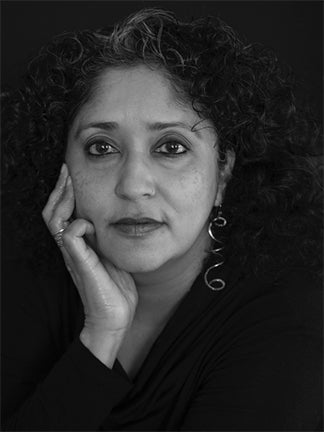KINGSTON, R.I. – March 21, 2019 – What started in a Kingston Emporium coffee shop in the mid-90s as a meeting between professors in different academic disciplines to discuss how to better support humanities studies at the University of Rhode has evolved into a vital hub for the humanities for students and faculty alike. Now, as the URI Center for the Humanities celebrates its 25th year, it not only serves as an important source of funding for academic research among faculty and graduate students, it has opened the door to new possibilities for a generation of students and empowered them to pursue their dreams.
Established by Faculty Senate legislation in 1994 and sustained with the help of an endowment backed by Winifred Brownell, dean of the College of Arts and Sciences at the time, the Center has been a major source of support for the humanities at URI. Over the years, the Center has provided merit scholarships to undergraduate and graduate students and awarded more than 225 grants to faculty and graduate students to help fund academic research, including close to $60,000 in just the last five years. While grants may be modest, their impact has been anything but – borne out by the fact that the Center has also had two Guggenheim Fellows; five National Endowment for the Humanities and a National Endowment for the Arts fellowship; two Ordre des Palmes Académiques; and eight Fulbright Fellowships, among others.
For those unclear about how to define the humanities, as fields of study the humanities emphasize the analysis and exchange of ideas and are often interdisciplinary by nature, according to the URI Center for the Humanities. Examples include:
- History, anthropology and archaeology, which study human, social, political and cultural developments, as well as aspects of the social sciences that use historical or philosophical approaches.
- Literature, languages and linguistics, as well as certain approaches to journalism and communication studies, that explore how people communicate and how thoughts and ideas on the human experience are expressed and interpreted.
- Philosophy, ethics and comparative religion, which consider ideas about the meaning of life and the reasons for our thoughts and actions.
- Jurisprudence, which examines the values and principles that inform our laws.
- Critical and theoretical approaches to and practices of the arts that explore historical or philosophical questions and reflect upon the creative process.
When asked about the importance of the humanities, Annu Palakunnathu Matthew, professor of art and director of the URI Center for the Humanities, explains “Graduate student Ryan Engley put it well when he said, ‘The humanities are something that you can’t Google!’ Studying the humanities broadens our perspective; it motivates critical thinking and problem solving, all of which are essential in everyday life and vital to employers, especially in the 21st century. Importantly, the types of jobs that cannot be outsourced are those that use the skills learned in the humanities.”
To bring this point home, each year for the past five years, the Center has hosted a Linking the Humanities to Careers event that welcomes back URI humanities alumni and pairs them with groups of students in a “speed dating” style event. The event gives students the opportunity to learn about and explore a variety of career paths and to gain a better appreciation of the benefits of studying the humanities by speaking with alumni about their experiences and what they’ve come to realize since graduating.
Leah Fiorey ’18, an English major who took part as an attendee prior to her graduation, explained how the varied career paths of alumni opened her eyes and buoyed her enthusiasm to the many possibilities of being a humanities major. “I was not expecting to connect with them, but I was able to understand what they went through is exactly what I was going through,” she said. “It encouraged me not to give up on what I want to be.”
In the fall, the URI Center for the Humanities became a founding member of the New England Humanities Consortium, the first-of-its-kind in the region to promote intellectual collaboration, interdisciplinary exchange and innovative programming for faculty, students and the communities they serve. Established by its members with the added support of $100,000 in seed funding from The Andrew W. Mellon Foundation, the consortium will focus on programming in such fields as history, language, art history, literature and philosophy. Among the Consortium’s first events will be a weeklong institute in the public humanities this summer in which faculty, graduate students and undergraduates will build skills and examine humanities scholarship in the context of advancing democracy, civic life and the public good.
“Collectively, each of our universities brings different strengths to the Consortium. Working together with the benefit of the Mellon grant, we widen the possibilities for new collaborations and the opportunity to elevate the dialogue of our disciplines and make a greater impact,” said Matthew. “That this is happening in our 25th year is a little like the icing on the cake and will lead the Center into another exciting 25 years.”
A celebration of the Center’s 25th year will kick off this spring with its eighth annual Humanities Festival. This year’s festival will celebrate the research of URI’s younger faculty who have received grants from the Center for the Humanities over the last five years. The Festival will take place Thursday, April 4, from 4 to 6 p.m. in the URI Robert J. Higgins Welcome Center, 45 Upper College Road, Kingston Campus, and will include the distribution of the Center’s annual Student Excellence in the Humanities awards, followed by two panels, entitled “Race and Representations” and “Contest Spaces, Social Changes,” that will feature the research of junior faculty in the humanities.
As part of the celebration, this year’s URI Honors Colloquium will be a humanities colloquium focusing on religion in America. The colloquium, which is traditionally held on Tuesday evenings throughout the fall semester in Edwards Hall, is free and open to the public. The Center for the Humanities, including board members and historians Evelyn Sterne and Alan Verskin, are the main organizers for this year’s colloquium, which will cover such topics as race and religion and religion and politics. It will begin on Sept. 17 with Alan Cooperman, director of Religious Research at the Pew Foundation, who will deliver a talk on “What Does Religion in America Look Like Today?”
Bringing things full circle, two years ago under Matthew, the Center established The Winnie, in recognition of Dean Winifred Brownell’s long-standing support of the humanities and her role in establishing the Center. The $3,000 collaborative grant supports research or teaching projects that include humanities content. Its first recipient was Ron Onorato, professor of art history and one of the Center’s founders in that coffee shop. This year, in conjunction with the 25th anniversary of the Center for the Humanities, it will also award a $3,500 stipend to one junior faculty member – an assistant or associate professor – to enable them to devote time to research, incorporating analysis and interpretation, that is of value to humanities scholars, general audiences or both.
Matthew, who will be stepping down from her seven-year term as director at the end of the academic year, summed up her experience, “What I’ve loved about working for the Center is being able to mentor younger faculty and graduate students and to provide them with the support they need for research, helping undergraduates to be excited about what is ahead of them with a background in the humanities and coming across people whose fields have influenced my own increasingly inter-disciplinary artwork. Each of our directors has steered the Center in important ways. The next director has exciting possibilities as the larger public realizes the relevance and importance of the humanities and as we increase our participation with the New England Humanities Consortium.”


